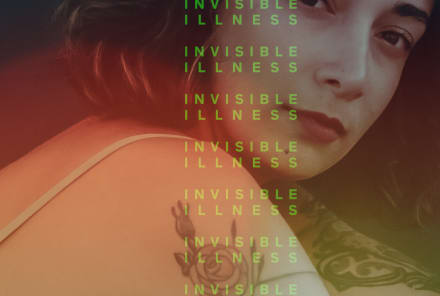Advertisement
How To Protect Your Gut And Support Your Body While Taking Antibiotics


It's that time of the year. Chilly weather ushers us indoors, where close contact, runny noses, and common coughs collude to spread bacterial infections. When you're up against something stronger than the standard cold—pneumonia, sinusitis, strep throat—your doctor may prescribe you antibiotics, Western medicine's golden bullet.
There's reason for antibiotics to be revered. For decades, these wonder drugs have stamped out formidable infections that can otherwise prove deadly. But their lifesaving potency comes at a cost. In killing off dangerous bacteria, antibiotics kill off the good, too. In a report published last year in Gut journal, researchers cataloged a host of adverse antibiotic effects on the gastrointestinal system, immune system, and metabolic system, even finding correlations between antibiotic use and rises in obesity and stress.
So, what are you to do when you've been prescribed these powerful pills?
Question your doctor. (It's OK.)
You and your doctor share a common goal: your wellness. Consider yourselves partners. Integrative gastroenterologist Robyn Chutkan in her book The Microbiome Solution advocates for becoming "the kind of patient who analyzes and queries medical advice, and engages your health care professional in respectful dialogue." Feel comfortable asking questions like, "Have studies shown that antibiotics shorten the duration of this type of infection or not?" In the case of bronchitis, antibiotics are commonly prescribed despite ample evidence1 that they are unnecessary. Or you might ask, "Is this the best type of antibiotic for my infection?" Certain varieties of antibiotics are better suited2 for certain illnesses. You could also ask, "Is this the shortest effective course for my infection?" It's important to take antibiotics for long enough3 to completely kill your infection, but you don't want to overshoot your goal and expose your body to the harsh side effects for longer than necessary.
Take your antibiotics as prescribed.
If your doctor has examined you and believes you have a bacterial infection that may not clear on its own, take the antibiotic course prescribed completely. Stopping treatment when you feel better is tempting but dangerous. You risk your infection returning or mutating into an antibiotic-resistant form. You may also be contributing unwittingly to the worldwide epidemic of antibiotic-resistant bacteria.
Support your gut with probiotic supplements.
Protect your microbiome with a powerful probiotic. Dr. Chutkan recommends Visibiome, a high-dose option available in capsules and in powder form that contains up to 900 billion colony-forming units of bacterial strains. Maintaining the function of your microbiome is key in preventing candida overgrowth, the culprit behind those yeast infections that crop up more readily while you're on antibiotics.
Safeguard your cells.
More information4 is surfacing about the damage prolonged use of antibiotics can wreak on mitochondria, sub-units in cells essential to the body's transformation of food into energy. Functional medicine doctor Terry Wahls M.D. says, "Mitochondria need all the B vitamins and minerals like magnesium, zinc, and sulfur. They also need coenzyme Q, but our ability to make coenzyme Q declines sharply after age 50. Mitochondria require plenty of antioxidants, which protect them from the free radicals generated during the production of ATP." In this animal study, N-acetyl-L-cysteine (NAC), an antioxidant derived from amino acid, was shown to help counteract the cellular damage of antibiotics.
Enrich your diet.
Functional medicine practitioner Will Cole recommends focusing your diet around foods that will support natural bacteria replenishment, saying, "Fermented foods like sauerkraut, coconut kefir, kimchee, and kvass can help to re-culture your microbiome, which is 80 percent of your immune system." To further support your healing, add in foods that will help combat infection. Dr. Cole says, "Natural antibiotics like oregano, garlic, and Pau d'arco are some of my favorite ways to blast out stubborn infections while not damaging your gut."
Nutritionist Meghan Telpner advocates for eliminating all sugars from both processed and natural sources, like maple syrup. "The bad bacteria feast on sugar, so try to keep that under control," she explains.
Stay hydrated.
Soaking up replenishing liquids will help your body stay in balance. Telpner recommends applying that advice to your food choices, too: "Broths and other soups can help support the health of the gut while on antibiotics."
Keep calm.
Stress5 is the enemy of healing. Telpner says, "Get plenty of rest. Antibiotics have the incredible ability of making us feel well very quickly, but there is still a lot going on in the body, so be sure to rest as much as you can." Meditation, deep sleep, and essential oils (lay low on powerful scents if you have inflammation in your passageways) can all help provide your body the peace it needs to repair.
Watch Next
Enjoy some of our favorite clips from classes
Enjoy some of our favorite clips from classes
What Is Meditation?
Mindfulness/Spirituality | Light Watkins
Box Breathing
Mindfulness/Spirituality | Gwen Dittmar
What Breathwork Can Address
Mindfulness/Spirituality | Gwen Dittmar
The 8 Limbs of Yoga - What is Asana?
Yoga | Caley Alyssa
Two Standing Postures to Open Up Tight Hips
Yoga | Caley Alyssa
How Plants Can Optimize Athletic Performance
Nutrition | Rich Roll
What to Eat Before a Workout
Nutrition | Rich Roll
How Ayurveda Helps Us Navigate Modern Life
Nutrition | Sahara Rose
Messages About Love & Relationships
Love & Relationships | Esther Perel
Love Languages
Love & Relationships | Esther Perel

















